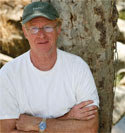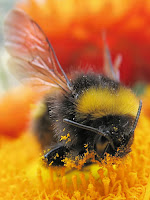 Well, for those of you just dying to read more about The Green Book, I submitted some interview questions to the authors and the following is their responses. If you want to find out more, check out my review of the book.
Well, for those of you just dying to read more about The Green Book, I submitted some interview questions to the authors and the following is their responses. If you want to find out more, check out my review of the book.Enjoy!
------------------------------------------------------
1. What was your biggest influence (people or otherwise) that made you an environmentalist - that inspired you to write this book?
First can I just say what a genius name Crunchy Chicken is, I love it!!
It’s funny I forget that I am a environmentalist. I think of myself first as a mother and then as someone who has so many questions that I want answered and that was my main inspiration for writing this book to answer all of my own questions.
2. You've added quite a few statistics regarding what kind of impact each suggested tip has to help people really see why it matters to do them. How difficult was it to compile the statistics for each entry?
This book was incredibly labor intensive. It took three people almost a year to complete all of the research and then we had a team of people triple check all of the work.
3. What was the most surprising thing you learned when doing your research? Was there anything you thought wouldn't matter as much, but really made a difference and vice-versa?
One thing I had never thought about before was rubber bands. They are synthetic and a a large amount of them are made from crude oil. When these are incinerated at the dump, they can cause health risks.
4. As an environmentalist, were you concerned that, by focusing on allowing people to still be "selfish", it gives them the impression that they are off the hook? That by encouraging low hanging fruit, people will feel placated and won't try to do as much as is needed to really lower their footprint?
This book is meant to be a starting point for everyone. It is welcoming and user-friendly and will hopefully draw people deeper into the green movement in their personal lives.
It shows that little things really do add up to big make a impact.
5. Which of the celebrity writings do you like the best - that really gets your message across?
I think that all of the celebrity anecdotes have something different and unique to offer to the reader and to the book, that is why those artists were chosen to be in the book. They each have such different perspectives and voices. Each piece is funny and thoughtful and worth a careful read!!
------------------------------------------------------
And there you have it!
Have a great weekend! I'll be gearing up for Local Food Month which starts on Sunday. So, there's a cherry pie, homemade tofu and okara veggie burgers in my near future!
See you tomorrow for a silly post...
















